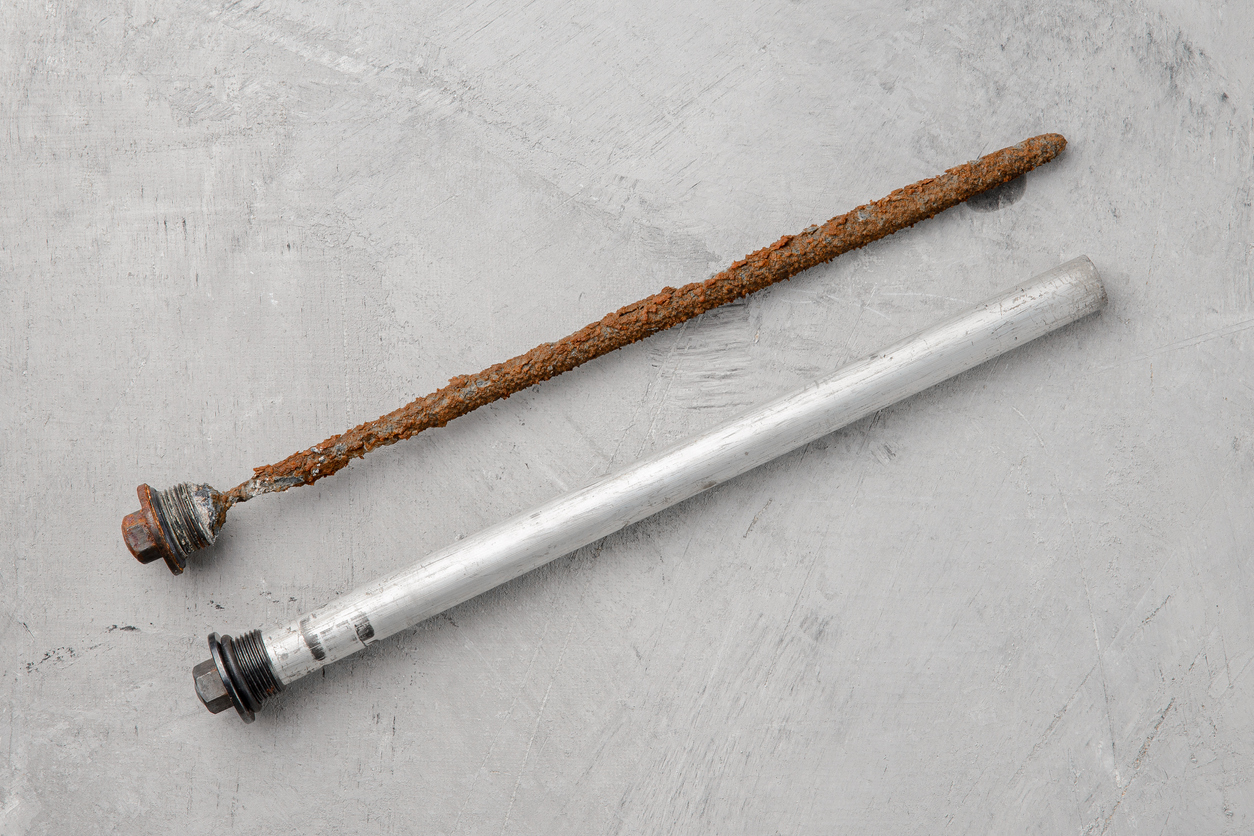Your water heater works hard day and night to provide you with the hot water you need in an instant.
In fact, because it never gets a season off, some would argue that it’s the hardest working home comfort system there is. Whether you agree or not,
you know that there’s nothing like stepping into a steaming shower or an inviting, hot bath.
And there’s no better way to ensure that your water heater provides years of trusty service than by checking the anode rod and replacing it when needed.
“What the heck is a rod?”, you ask? Read on to learn all about this vital component and how it helps your water heater perform better and last longer.

What Is An Anode Rod?
This rod is a steel core wire wrapped up in metal that runs down the center of a tank-style water heater. It is typically made of either magnesium, aluminum, or aluminum/zinc alloy. Some water conditions call for using one type of material over another.
The Role of the Anode Rod
The purpose of the anode rod, also called the sacrificial rod, is to attract the sediment and corrosive elements in the water so that they corrode the anode rod rather than the inside of the water heater tank. In essence, the anode rod sacrifices itself to protect the water heater. In doing so, it naturally wears off in time. And if not inspected and replaced when needed, it will no longer be able to protect the inside of the tank from the corrosive elements, putting it at risk for rust, cracks, and premature failure. We recommend getting your anode rod checked once a year and replaced every three to five years.
Signs of a Deteriorating Anode Rod
There are different ways to tell if you need to replace your rod. Some of them require you to inspect the rod itself while others will make their presence known in the water. Here are some things to look for:
- Hot water has a “rusty” smell, indicating that the anode rod may have come loose and is soaking in the water.
- Hot water has a rotten egg smell which is often a result of the water reacting with either the aluminum or the magnesium that covers the rod.
- Hot water appears rusty, brown, or otherwise discolored.
- Your faucet aerators seem to clog more frequently or you notice a gel-like substance while cleaning them.
- The water heater is making a rattling or clanking noise.
- You notice a leak, crack, rust, or corrosion. If you see water around your tank, call a licensed plumber ASAP.
Whether you’ve encountered problems related to the anode rod or another issue affecting your water heater, Messmer Mechanical is ready to help. Contact us today to schedule your water heater inspection or to learn more about the services we provide.




